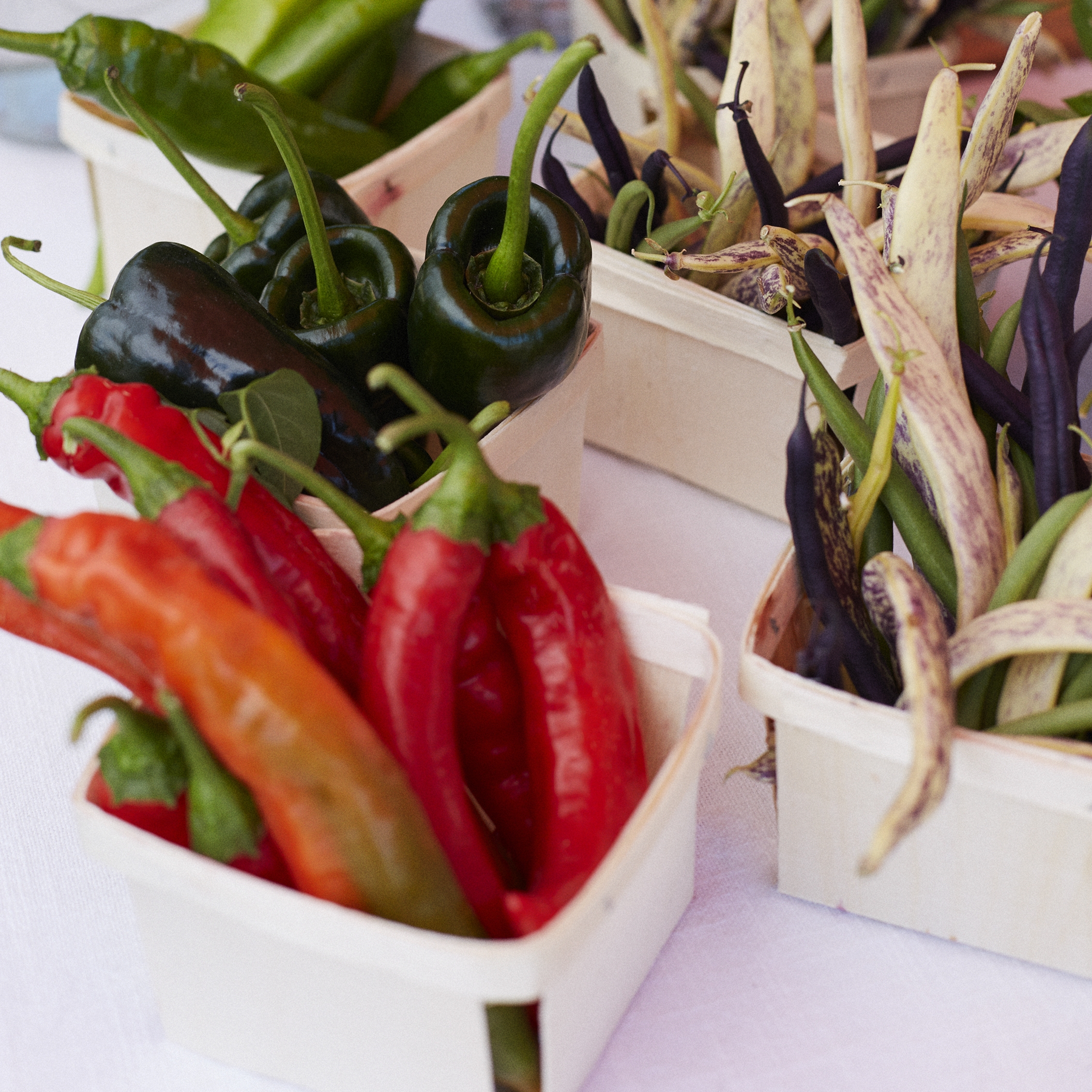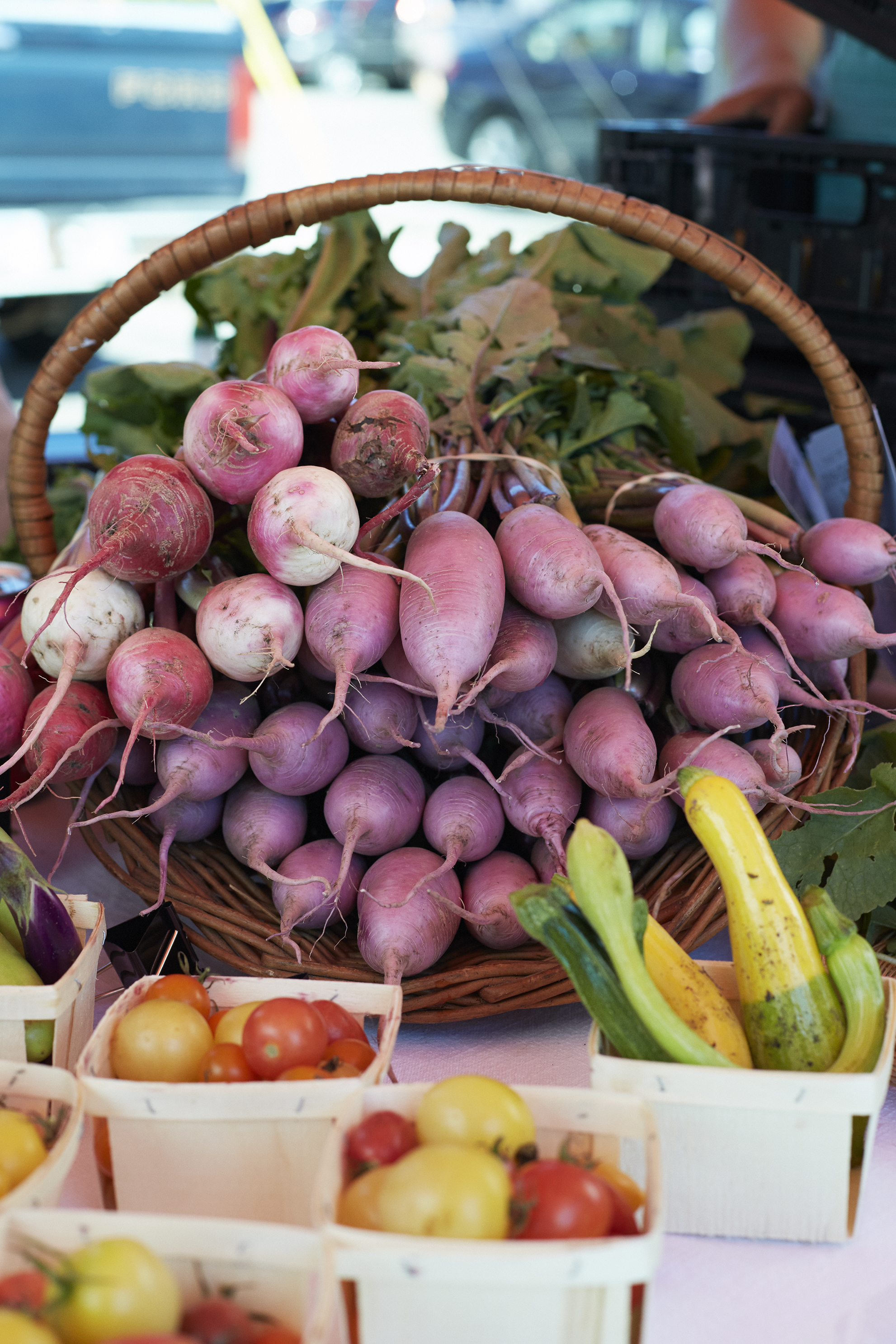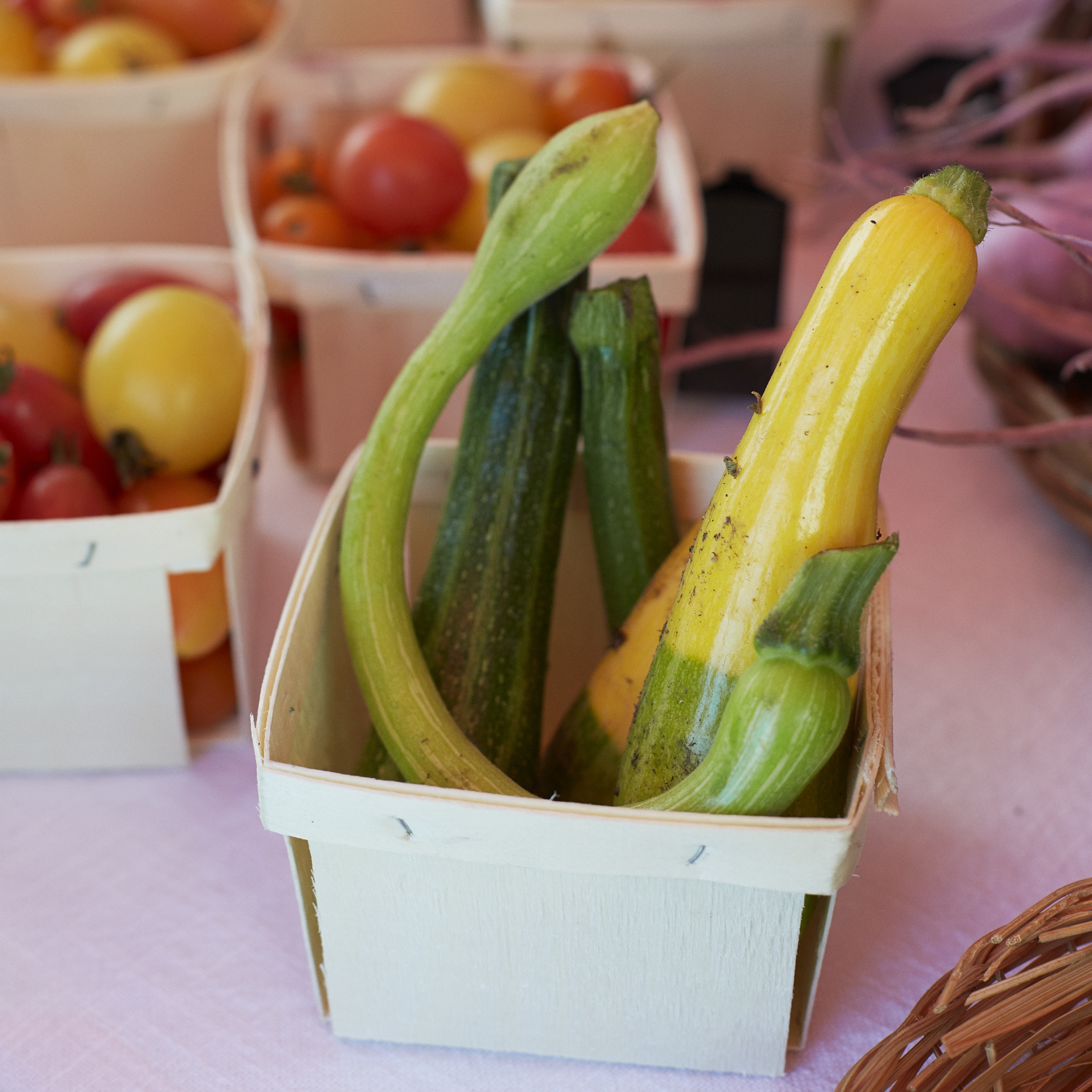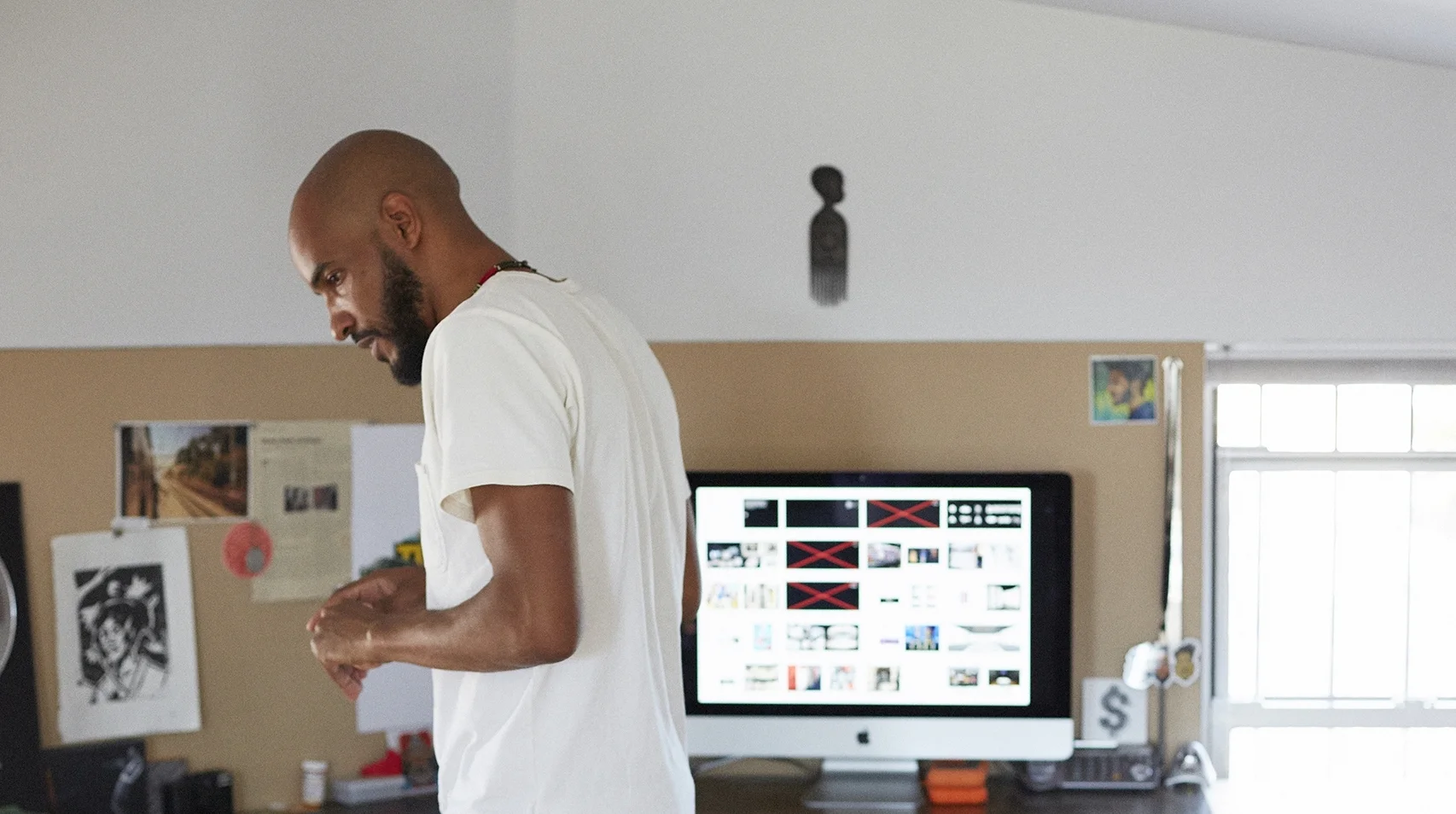WORDS: Yahdon Israel PHOTOGRAPHY: Julien Roubinet
Growth should never be measured by the length of the branch; but by the depths of the root. This is why urban farmers Ryan Anderson and Hannah Clark created ACRE, a sustainable urban farm in the heart of Detroit to help Detroiters eat fresh and healthy produce made in their own backyard. With this comes the prospect and potential for many people to get back in touch with the earth in which we all live.
Ryan and Hannah met in 2000 at George Washington University when they were both freshman. Ryan studied American Studies. Hannah majored in Political Science. The friendship didn't happen overnight. Nevertheless the seed was planted—and over the years since their first encounter, it grew.
The Lexana, Kansas, native, Ryan, had been working in D.C. as a political fundraiser when he visited a local farmer's market and ate one of the carrots. Ryan always hungered for something new. But what he craved in that moment was something familiar. Something that used to be standard practice before the ebb and flow of mass produced foods estranged us from our earth. Ryan craved to be connected to his food. So did Hannah.
Born and raised in Boston, Hannah had been working as a non-profit coordinator in Chicago when she too decided it was time for a change. Like Ryan she wanted to be closer to that which mattered to them, the earth, so they both quit their jobs, apprenticed with some local urban farmers in Detroit, and permanently moved to the city in 2011.
By 2012, they were knee deep in their own urban farm, giving back to Detroit everything they felt they received—connection; support and community that ran as deep as any root; home. We visited ACRE at their urban farm in Detroit to talk about their first makes, the undeniable value urban farming can bring to a community, and why Detroit was the community worth bringing it to.
What was the first thing you remember making?
Hannah: I was a Girl Scout when we were all given begonias to grow. I don’t think I’d ever grown anything before but growing this begonia was the first time that I felt I could really grow things and keep them alive. It won me a 4-H award.
It was one of those things where I initially felt, “I’m probably gonna kill this." instead the opposite happened.
Ryan: One of the things that really turned me on to local organic produce was carrots. I was in DC and I’d go to the farmer’s market and get beautiful, delicious, fresh carrots. They were so much better than the ones at the grocery store. And I remember eating a carrot and thinking, “wow.”
There's a difference between the organic local produce and the industrial stuff that you get at the grocery store, and you can taste it. So we were obsessed with carrots when we started farming—and did nine varieties of carrots our first year.
Even though we didn't make any money the first year and things were totally a mess, we still felt success, because I had a hand in making something that was beautiful and delicious that carried our values to people.
Why do you do what you do?
Hannah: Doing this makes me feel the closest I've ever felt to being the person who I wanna be, even when I'm unhappy doing it. Who I want to be hasn’t been fulfilled but every year I feel closer to whoever that is.
Ryan: I'm really driven by the idea that there's a lot of value in us re-focusing the way we think about food, nutrition, and urban development.
Plus I love the challenge. If farming was easy I'd get bored, and one of the reasons I was so willing to leave my previous career path was because it got to a point where everything was already in the books, like it was all figured out. That wasn't very satisfying to me. I knew I could make more money and have more stability but I wanted a challenge.
What do you think of the value urban agriculture has for a community?
Hannah: Post-World War II consumer culture made us want to be able to get anything from anywhere. There are benefits to being able to move things quickly but when produce is bred for it's ability to be shipped around the world, it's not gonna be about how good it is for you, nutritional-wise, or how amazing it tastes. With urban agriculture we have the opportunity to make taste and nutrition a priority again.
Ryan: To Hannah's point, the industrialization of food created so much distance between us and what we eat. Many of us don't know how to grow food, how to cook food, what the nutritional value of our food is. Urban agriculture, I think, is probably our best bet at re-establishing that connection.
One of the reasons we have a farm share program—where people pick up food every week—is because we want to help people get re-connected with the cycles of nature and the seasonality of fresh foods. They come out to the farm, actually get to see the produce and know the farmers that are growing the food for them. You can't get fresher than urban agriculture.
What would you say inspires you both as makers?
Hannah: Detroit is a really hard city in that they understand what it takes to do things on your own because that's what the people living here have had to do. Detroiters never really tell you you're crazy for dreaming to do something. But they also keep you checked in reality. And they support you—with words of encouragement, with money, with their time, their space.
The reason we made it more than a year was definitely because of the people here. Our community. We definitely would have given up after the first year if it wasn't for this city.
Ryan: I concur. People here are incredibly helpful and supportive in a way that I've never experienced in other cities. That sense of community that people have is really what makes it possible for us to do what we're doing.
If there was something you wish you would have known sooner, what would it have be?
Ryan: Everything. We started this with no real experience. So every piece of information we're learning is like, "If I had known that last year, it would've been better."
Hannah: Planning things out a little bit more. We just jumped into the dirt feet first telling ourselves, "Let's just till it all!" But that's why we have weeds everywhere. Having a practical groundwork laid would've helped.
That might be partially why people stick with farming too. It teaches you a lot about patience and the importance of sticking something through. When you learn a lesson here, you can't just like do it differently in that moment. You have to wait 'til next year. In that time you begin to pay more attention and are determined to seeing it through because you want to get it right.
What was the last thing you grew?
The last thing we grew were radish.
What do you feel you've learned about yourself through what you're doing?
Hannah: I've learned to be less arrogant.I've been legitimately bad at some of this stuff. For most of my life I've been good in school. So I got used to generally being good.
With farming there were, and are, things I'm very bad at. With practice I'm steadily learning to get better but I'm still not the best. This has made me a lot humbler.
Ryan: I've learned that I have more perseverance than I thought. Starting your own business, in and of itself, is a challenging thing to do. Then, because I feel like urban agriculture is not known for making a lot of money, there's that much more perserverance you need. To still be here, doing this, let's me know how committed I am.
What do you feel you've learned about people through what you do?
Hannah: From having to confront personal issues and disagreements I've learned that 90% of the time, people are not trying to be jerks. Generally they want you to like them, and they want to be decent at the things they're doing. In the other places I lived before I felt like people were out to ruin my life. Hearing people out and learning why people do what they do actually helps me understand their perspective, see where they're coming from.
Ryan: I've learned that the people of Detroit have a really large capacity for collaboration and mutual support more than in any other place I've been. It really feels like everyone is rooting for everyone else in this city. Even in situations where you would expect some sort of competitive approach. The people here are united in the sense that in order to make what we want to see, we all have to pitch in. Detroiters are doing that.
MakersFinders is a digital platform that connects independent makers to passionate finders.
We have an app in private beta. We publish stories. We host events. And provide quarterly grants for our community of Makers and Finders.
Our team is dedicated to cultivating and connecting communities across various industries and cultures.











































